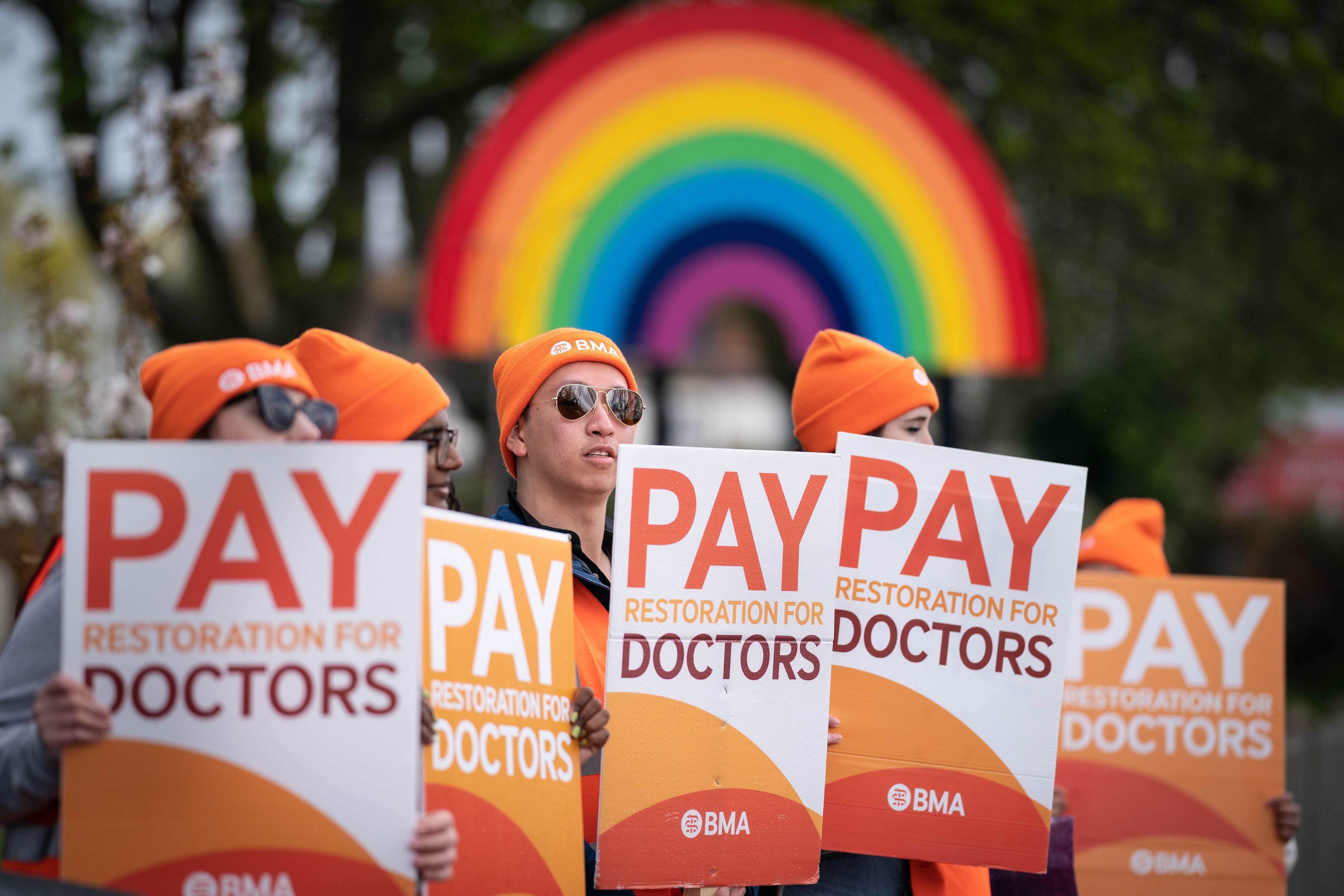Nursing union to reveal pay ballot result as junior doctors call for talks
The BMA union urged Steve Barclay to agree to pay negotiations facilitated by Acas.

Your support helps us to tell the story
From reproductive rights to climate change to Big Tech, The Independent is on the ground when the story is developing. Whether it's investigating the financials of Elon Musk's pro-Trump PAC or producing our latest documentary, 'The A Word', which shines a light on the American women fighting for reproductive rights, we know how important it is to parse out the facts from the messaging.
At such a critical moment in US history, we need reporters on the ground. Your donation allows us to keep sending journalists to speak to both sides of the story.
The Independent is trusted by Americans across the entire political spectrum. And unlike many other quality news outlets, we choose not to lock Americans out of our reporting and analysis with paywalls. We believe quality journalism should be available to everyone, paid for by those who can afford it.
Your support makes all the difference.A nursing union is set to announce the result of a ballot over a Government pay offer on Friday, as striking junior doctors urged the Health Secretary to get round the table to try to break the deadlock over their pay.
Members of the Royal College of Nursing (RCN) and Unison, which represents nurses and other health workers, have been voting on a proposed deal which includes a 5% pay rise this year and a cash payment for last year.
Voting ends on Friday and the RCN will announce the final result later, with reports in The Times and The Guardian suggesting it will likely show members have rejected ministers’ offer.
Unison’s ballot closes later on Friday and the result is expected over the next few days.
Leaders of both the RCN and Unison unions have recommended acceptance of the offer.
The ballots will close as around 47,000 junior doctors in England stage the final day of a four-day strike in an increasingly bitter dispute over pay.
The British Medical Association (BMA) junior doctors committee said it had again asked Health Secretary Steve Barclay to meet with them to discuss their demands for full pay restoration.
In the letter shared on Twitter, they wrote: “As we have consistently and repeatedly said, we do not have any preconditions to negotiations with you.
“We hope that you will set yours aside and engage with us in good faith.”
They said they had confirmed their willingness to engage in a process facilitated by conciliation service Acas, adding: “We urge you to agree to this”.
But Mr Barclay reiterated that their demand for a 35% pay rise is “unreasonable” and that talks cannot take place until junior doctors “call off strikes and put forward a realistic proposal”.
I remain ready to meet the BMA as soon as they call off strikes and put forward a realistic proposal
Writing in The Express, he said: “As soon as the BMA pauses strikes and shows willingness to move significantly from their demand for a 35% pay increase, we can enter negotiations straight away.
“The onus is squarely on the shoulders of the junior doctors committee who’ve shown no signs of moving so far.”
Conciliation would “improve things,” said the former chief executive of Acas, which has said it is “well prepared and ready to help”.
John Taylor told BBC’s World At One programme: “Conciliation is not a silver bullet. It’s not a miracle cure. What it will do is improve things.”
The Department of Health and Social Care said it remains open to a role for Acas.
Prime Minister Rishi Sunak on Wednesday said he wanted to find a “reasonable compromise” with junior doctors.
Hospital bosses have expressed concern about keeping patients safe as they struggle to secure cover for overnight junior doctor shifts during strikes.
During the strikes, staff who are still working have prioritised emergency and urgent care over some routine appointments and procedures to ensure safe care for those in life-threatening situations.
This means hundreds of thousands of appointments and operations have been rescheduled.
The BMA claims junior doctors in England have seen a 26% real-terms pay cut since 2008/09 because rises have been below inflation.
Meanwhile, civil servants confirmed a fresh wave of strikes as unions attacked an announcement of a pay rise for this year of between 4.5% and 5%.